22 Jan Protecting Yourself: How to Choose a US Tax Professional After the Court Ruling (IRS)
On Friday, January 18,, 2013 a judge ruled that the IRS policies requiring the registration and licensing of tax preparers was illegal. (For those interested, here is a link to the decision, http://www.ij.org/images/pdf_folder/economic_liberty/irs_tax_preparers/irs-opinion-1-18-13.pdf). Under the law that was struck down, it was illegal to prepare a tax return for compensation without being registered with the IRS as a preparer and receiving a PTIN number. Under the old rules, obtaining a PTIN number was dependent on passing an exam. Attorneys, CPA’s and Enrolled agents were exempt from these requirements as they had more stringent requirements to begin with.
To summarize the issues at question, the court was asked to determine the rules regarding practicing before the IRS. Under the law as it is written, the IRS is permitted to determine who is permitted to practice before the IRS, meaning representing clients in audits & appeals. The IRS implemented the practice of requiring registration by stating that tax return preparation was considered practicing before the IRS. The plaintiffs in the case argued otherwise. The judge sided with the plaintiffs.
With the court ruling, the PTIN requirement is still permitted. However, the change here is that there are no requirements to get a PTIN number. Any individual who wants to prepare returns can now get a PTIN number if they are willing to pay the $63 US application fee.
With this change allowing anyone to get a PTIN number, what can people do to ensure they are using a competent tax preparer as opposed to anyone who can pay the fee? Note that we are not arguing the merits of tax preparer licensing. That is a political matter and anyone can have their own opinion on the subject.
The following are some suggestions to ensure that your tax preparer is competent and capable of preparing your returns. (These factors are geared toward the US expats in Canada)
1) Hire our firm to prepare your return:
a) Our firm is experienced in dealing with Expat US tax and our people are experts on the subject.
2) Hire an attorney, United States CPA or Enrolled Agent (EA) that has experience in Expat taxes: These 3 categories of preparers have already completed a difficult licensing exam; therefore, they would be more likely to be competent than someone with no licensing.
3) Other factors that should be considered red flags. If you see these things, hire someone else:
a) You pay someone to prepare the return and the paid preparer sectionshows one of the following 4 descriptions:
i. Is blank.
ii. Says self prepared.
iii. Says the return was prepared by an unpaid preparer.
iv. Does not show a PTIN number.
b) Has your accountant ever told you the following? If so, run to someone else:
i. “You don’t owe anything so you don’t have to file.”
ii. “You only pay tax in the USA on income earned in the USA.”
iii. “You can’t receive a refund, you didn’t pay anything.”
iv. “I prepare your US return solely from your Canadian return, I don’t need anything else.”
c) Has your accountant ever asked you any of the following questions? If the answer is no, they may not be competent to prepare an expat tax return for an American citizen in Canada. (If your Canadian accountant prepares the return he may know some answers but will still need many more. These are some important questions, there can be others not listed here that are relevant)
i. Did your accountant ask you about bank or investment accounts outside the USA.
ii. Do you know anything about FBAR or FATCA?
iii. Do you have an RRSP?
iv. Do you own your own business?
v. Are you a partner in a partnership or other non-incorporated entities?
vi. Do you have an RESP for your children?
vii. Do you have a TFSA for yourself?
viii. Do you invest in Mutual Funds/REIT’s/ETF’s?
ix. Do you have a holding company in Canada?
x. Do you have any connection to an estate or trust in Canada?
xi. Are your spouse/children US citizens?
- If yes, did he mention anything about child tax credits or refunds available?
d) Please examine your most recent tax return or ask your accountant about the following forms to ensure they were properly reported in the prior year.
i. Bank accounts with more than $10,000 in total – FINCEN Form 114
ii. Total net worth greater than $200,000 – Form 8938 (Sometimes not needed)
iii. RRSP/RRIF/LIRA – Form 8891 for each account
iv. TFSA – Forms 3520 & 3520A for each TFSA account
v. RESP – Forms 3520 & 3520A for each TFSA account
vi. Ownership of greater than 10% of a Canadian corporation – Form 5471
vii. Ownership of greater than 10% of a Canadian partnership – Form 8865
viii. Ownership of Mutual funds/REIT’s/ETF’s – Form 8621
ix. Transfer of property to a foreign company – Form 926
4) Some general things to look for:
a) Is the company recommended by the Better Business Bureau or Chamber of Commerce in the region?
b) Are the accountants guaranteeing low prices or large refunds that seem outlandish?
c) Does the person seem too good to be true?
d) Can the accountant provide any references, either directly or from their website?
The above are things that we would advise you to look for in choosing your US tax provider. None of the factors are conclusive by themselves but should provide an indication as to whether the company is capable of looking after your needs.

Sorry, the comment form is closed at this time.